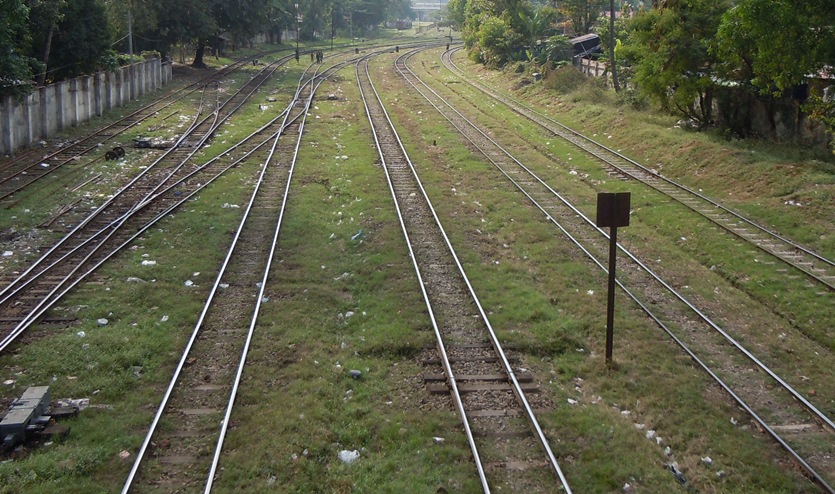As New Mandala readers are probably well aware, the euphoria over Myanmar’s 1 April 2012 by-elections — in which the National League for Democracy won 43 out of 44 contested seats — is now mired in a controversy over the oath of office. In particular, the NLD worries that the oath (in Schedule Four of the 2008 Constitution), which requires MPs to “defend” and “protect” the constitution, would preclude them from attempting to amend the constitution. The NLD would prefer language amounting to “respecting” the constitution.
At first glance, the NLD’s objection seems much ado about nothing. After all, most democratic countries require government officials to swear a similar oath upon entering office. The United States, India, Japan, Germany, Costa Rica, and many other fairly stable democracies all have oaths of office that require government officials to “protect” or “defend” the constitution.[1]
Not only has this language not been interpreted as precluding constitutional amendments, but also it has not even prevented politicians from championing trivial and partisan amendments. In 1989, President George H. W. Bush publicly supported an amendment to ban flag burning. Other American politicians regularly call for constitutional amendments to outlaw abortion.[2]
Of course, as Tin Maung Maung Than recently noted in his post, the NLD’s proposed amendments would challenge the very foundations of discipline-flourishing democracy. The Hluttaw will probably not pass any amendment that abolishes the military’s 25% seat share in the Hluttaw until at least after the next elections in 2015. Why then would the NLD make such a fuss over the language of the oath if MPs will not actually have to make a choice between “protecting” and “respecting” the constitution during the current legislative session?
Most observers have thus far accepted the NLD’s insistence that the dispute concerns a “technical matter” over legal language. Hanna Hindstrom suggests it could be a sign that some members of the NLD worry joining the Hluttaw might compromise their legitimacy. However, it seems more likely that the NLD is using the impasse in order to gauge the mechanisms for constitutional change.
First, the most obvious way out of the current impasse would be for the government to amend Schedule Four of the Constitution such that it reads “respecting” rather than “defending”. Opposition MPs have already asked Pyithu Hluttaw Speaker Shwe Mann to take this route. In a sense, the oath issue is an ideal test case for the NLD. On the one hand, the oath is a merely symbolic issue for both sides – the military would lose little actual power by permitting a change in language and would gain the NLD’s cooperation. Meanwhile, the NLD MPs could reassure party hardliners that they will indeed push for constitutional amendments.
The process of the constitutional amendment would be just as important to observe. Myanmar’s newborn constitution has never been amended. According to Chapter XII of the Constitution, 20% of MPs in the Pyidangsu Hluttaw can submit a proposal for amendment. With the NLD’s gains in the by-elections, the USDP and military MPs now control only around 78% of the seats, meaning that it is possible – if not yet likely – for the opposition to formally propose amendments. Thus, knowing how the process would proceed, which Hluttaw committees would oversee the bill, and how much debate would be permitted could all serve the NLD well if it decides to pursue amendments down the road.
Finally, the impasse will test the Constitutional Tribunal’s ability to resolve constitutional disputes. Already, the NLD has asked the Constitutional Tribunal to change the wording of the oath. However, the tribunal might be able to please both sides to the dispute by ruling that the oath as currently worded in Schedule Four does not preclude MPs from publicly disagreeing with portions of the Constitution or proposing amendments. The court would probably want to draw a distinction between the oath channeling constitutional disagreements into the political process, such as Hluttaw debates, as opposed to anti-system elements, such as parties that seek revolution or employ violence.[3]
It is too early to judge whether the NLD’s decision to boycott the opening session of parliament will pay dividends. At a time when Myanmar’s political reforms are still fragile, the decision entails real risks. Nonetheless, it could have two useful consequences. First, it should reassure hardliners within the NLD that participating in the political process does not necessitate sacrificing their ultimate goal of constitutional reform. Second, by forcing a “war of words”, political actors gain insight into the potential for constitutional amendments, as well as the potential for the Constitutional Tribunal to resolve constitutional disputes through creative reinterpretation.
Dominic J. Nardi, Jr. is a Ph.D. student in the University of Michigan Political Science Department. He also has a J.D. from Georgetown University and an M.A. in Southeast Asian Studies from Johns Hopkins. His research focuses on judicial politics in Indonesia, the Philippines, and Myanmar.
[1] On Wikipedia alone, oaths of office in Costa Rica, Brazil, Germany, Ghana, Greece, India, Iran, Japan, Malaysia, Pakistan, Philippines, Portugal, Russia, Singapore, and the United States all have similar language. A more thorough search would probably reveal more examples.
[2] For other less prominent examples, see Wikipedia and USConstitution.net.
[3] Although during the Cold War far too many countries banned even those communist parties that sought to participate in politics through legitimate, electoral means.
 Facebook
Facebook  Twitter
Twitter  Soundcloud
Soundcloud  Youtube
Youtube  Rss
Rss 